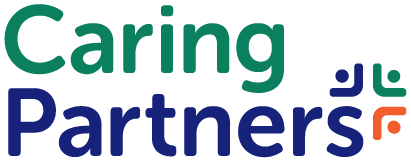Home Care Agencies
Senior Care Marketing
Sure-Fire Ways to Increase Responses to Your Emails, Part 1

You’re in the home care business to help people. So, it can be frustrating to send emails to prospective clients and get no response. Fortunately, there are some simple, proven techniques to increase your response rate.
Write a compelling subject line. People are more inclined to open emails that are specific, relevant, and personal. In fact, emails with a personal subject line are 22% more likely to be opened. To make your subject lines more personal, include the care recipient’s name. To make your email subject line more relevant and specific, add a phrase stating that your email is in response to a referral. Here’s a subject line to try: A Response to Your Caring.com Inquiry: Home Care for John Smith”. There are also free online tools that you can use to help you determine if it’s a good subject line for increasing the chance of the email being opened, such as this one.
Express empathy and understanding. As the saying goes, “No one cares how much you know, until they know how much you care." So, ensure the first sentences of your email reference the name of the care recipient or the contact. Then talk about the details provided by your referral source. This establishes that you know the situation and care about the outcome. For example: “Good morning Mr. Smith – You contacted Caring.com about home care for your father, John Smith. Sorry to learn he had a fall recently.”
Position your agency as a great match. Provide a brief intro to your agency. If you’re part of a franchise, say that. If you’re a local boutique agency, let the prospect know. If you’re an award-winning agency, have the associated badge or a “Read our Reviews” link in your email signature. Briefly explain who you are and how you can assist. You could say something like: “While John recovers, I can get a caregiver to help him with bathing and dressing. Because my agency has provided care in this area for more than 20 years, I have several excellent caregivers in your neighborhood. They would love to help John.”
Ask the prospect to choose between two options and respond to your email. All too often, agencies send emails to introduce their services and forget to end the email with a call to action – a request for the prospect to do something. In this case, ask the prospect to reply to the email and set up a home assessment. Whenever possible, give two options. This is called a closed choice, a respectful way to encourage decision-making. Also, make sure the contact knows that your assessment is free. For many people, home care is their first experience with senior care. These people don’t know that you’re willing to meet with them at no charge. And the word “free” often compels decision making. You might say: “I can stop by your house tomorrow to talk about John’s needs. Would you be home at 10:00 am, or would 2:00 pm be more convenient for a free assessment?”
Following these tips will encourage more responses to your emails -- especially if you reach out as soon as possible, keep the email short, and customize your email to each prospect. In part two, we’ll talk about how to follow up with prospects who need more prompts to respond.
You May Also Like This
Home Care Agencies
Senior Care Marketing
Sure-Fire Ways to Increase Responses to Your Emails, Part 1

You’re in the home care business to help people. So, it can be frustrating to send emails to prospective clients and get no response. Fortunately, there are some simple, proven techniques to increase your response rate.
Write a compelling subject line. People are more inclined to open emails that are specific, relevant, and personal. In fact, emails with a personal subject line are 22% more likely to be opened. To make your subject lines more personal, include the care recipient’s name. To make your email subject line more relevant and specific, add a phrase stating that your email is in response to a referral. Here’s a subject line to try: A Response to Your Caring.com Inquiry: Home Care for John Smith”. There are also free online tools that you can use to help you determine if it’s a good subject line for increasing the chance of the email being opened, such as this one.
Express empathy and understanding. As the saying goes, “No one cares how much you know, until they know how much you care." So, ensure the first sentences of your email reference the name of the care recipient or the contact. Then talk about the details provided by your referral source. This establishes that you know the situation and care about the outcome. For example: “Good morning Mr. Smith – You contacted Caring.com about home care for your father, John Smith. Sorry to learn he had a fall recently.”
Position your agency as a great match. Provide a brief intro to your agency. If you’re part of a franchise, say that. If you’re a local boutique agency, let the prospect know. If you’re an award-winning agency, have the associated badge or a “Read our Reviews” link in your email signature. Briefly explain who you are and how you can assist. You could say something like: “While John recovers, I can get a caregiver to help him with bathing and dressing. Because my agency has provided care in this area for more than 20 years, I have several excellent caregivers in your neighborhood. They would love to help John.”
Ask the prospect to choose between two options and respond to your email. All too often, agencies send emails to introduce their services and forget to end the email with a call to action – a request for the prospect to do something. In this case, ask the prospect to reply to the email and set up a home assessment. Whenever possible, give two options. This is called a closed choice, a respectful way to encourage decision-making. Also, make sure the contact knows that your assessment is free. For many people, home care is their first experience with senior care. These people don’t know that you’re willing to meet with them at no charge. And the word “free” often compels decision making. You might say: “I can stop by your house tomorrow to talk about John’s needs. Would you be home at 10:00 am, or would 2:00 pm be more convenient for a free assessment?”
Following these tips will encourage more responses to your emails -- especially if you reach out as soon as possible, keep the email short, and customize your email to each prospect. In part two, we’ll talk about how to follow up with prospects who need more prompts to respond.

